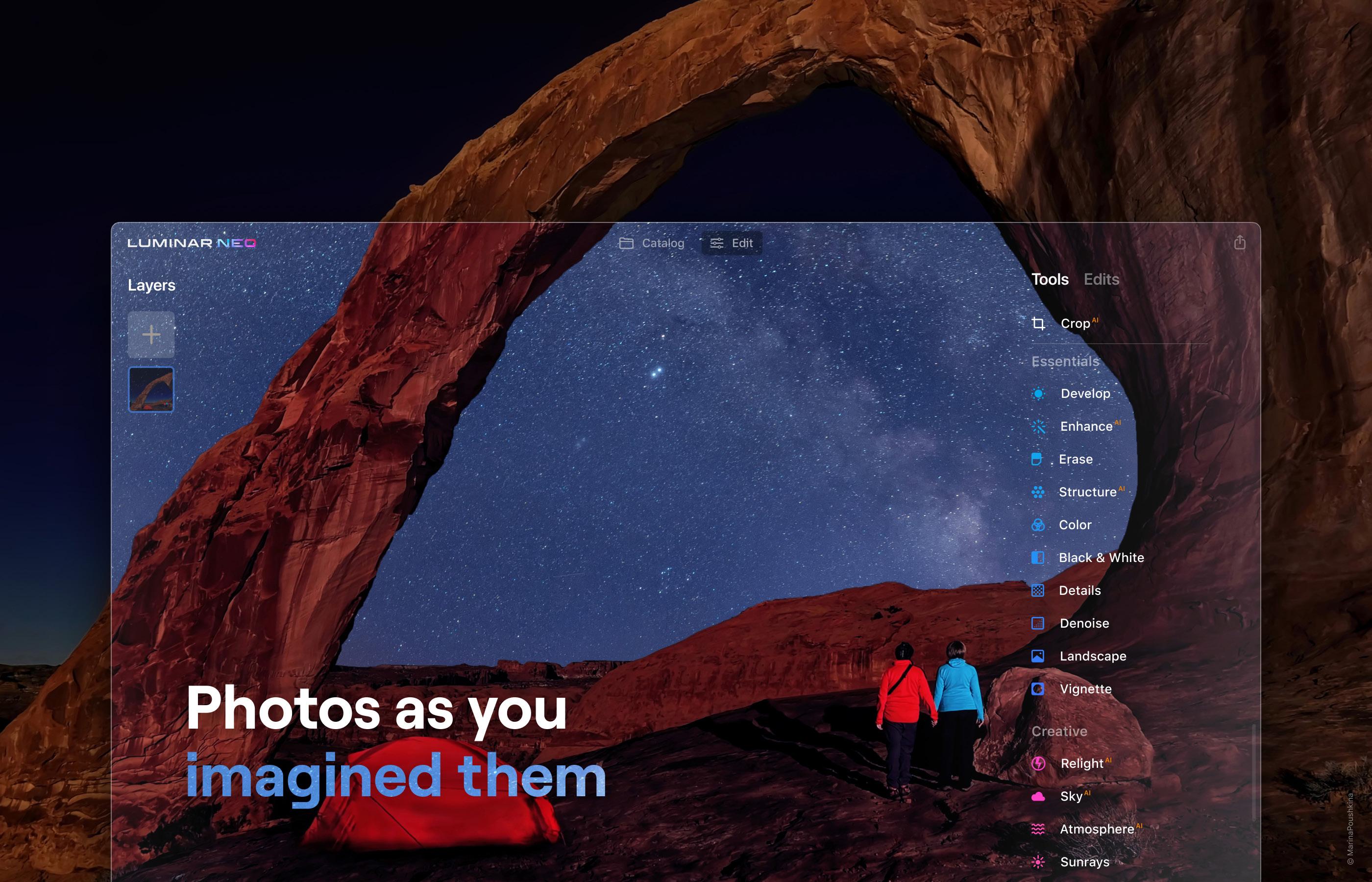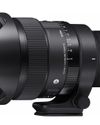
Have you ever photoshopped a picture? The answer to that question is probably a simple "yes" or "no," but what if I asked you if you've ever "lightroomed" a picture? Or if you've ever "luminared" a picture? In the same vein, I'm sure you've probably googled an answer to a question you had, but you may not have "binged" the question.
See, while I was doing research for this article, I was also pondering how and when Photoshop became so popular and synonymous with photo editing. You can tell that a product or service has truly become ubiquitous when its name can be used as a verb. Even my computer’s spellchecker is perfectly fine with the word “photoshopped” but when it came to “lightroomed” or “luminared,” the spellchecker simply wasn’t having any of it, and it whipped out the zigzagged red lines.
At this point, you could be forgiven for thinking that I’ll be talking about a new version of Photoshop, but today we’ll actually be looking at the Luminar Neo photo editing software from Skylum. I only mention Photoshop to show how entrenched that product is in the marketplace and in consumers’ minds, and any competitor to Photoshop is bound to be facing an uphill battle.
However, I became a big fan of Luminar Neo as I tried it out, and I even purchased a copy of the software for myself after I had already finished researching for this article. That’s not something I can say for Photoshop. While I’ve only tried that program a couple times, I always found it way too bloated and confusing, and I never knew where to start. Even though I may have wanted to do something simple, such as removing powerlines from a picture or blurring an element of the background, I just couldn’t get the hang of Photoshop, and I eventually would cave and just ask my brother to do it for me.
Diese Geschichte stammt aus der Issue 117-Ausgabe von Photography Masterclass Magazine.
Starten Sie Ihre 7-tägige kostenlose Testversion von Magzter GOLD, um auf Tausende kuratierte Premium-Storys sowie über 8.000 Zeitschriften und Zeitungen zuzugreifen.
Bereits Abonnent ? Anmelden
Diese Geschichte stammt aus der Issue 117-Ausgabe von Photography Masterclass Magazine.
Starten Sie Ihre 7-tägige kostenlose Testversion von Magzter GOLD, um auf Tausende kuratierte Premium-Storys sowie über 8.000 Zeitschriften und Zeitungen zuzugreifen.
Bereits Abonnent? Anmelden

THE LOWDOWN ON THE SIGMA 15 MM F/1.4 ART FISHEYE LENS FOR SONY
Still, I don't want you to think I'm trying to give you the ol' bait-and-switch, so I'll say right from the top that this lens is quite pricey, and it's certainly not for everyone.

FEATURED PHOTOGRAPHER: DINA BELENKO
In this issue, we interview Dina Belenko, the conceptual still life photographer whose work transcends the boundaries of imagination.

PROVEN TECHNIQUES FOR CAPTURING THE BEAUTY OF FIREWORKS
Snapping the perfect shot of a fireworks display involves more than just pointing and shooting.

7 REASONS TO USE A DEDICATED CAMERA INSTEAD OF A SMARTPHONE
Nearly all of us us have a smartphone in our pockets and the included cameras have led to a real explosion in photography.

7 COMPOSITION TIPS THAT WILL IMPROVE YOUR PHOTOS
If you've wondered why some photos just look better, one of the secrets is often the composition.

THE LOWDOWN ON THE CANON EOS R50 MIRRORLESS CAMERA
An ideal camera for entry level photographers on a budget

FEATURED PHOTOGRAPHER: DAVID WRAGG
In this issue we featured David Wragg, an English automotive studio photographer. David caught our eye when he shared one of his images with us on Facebook where he captured the sleek curves of the front end of a classic Jaguar E Type.

MASTERING SPORTS PHOTOGRAPHY: TECHNIQUES FOR CAPTURING THE ACTION AND FREEZING THE MOMENT
Sport is such a broad and encapsulating term. People across the world love playing and watching a huge variety of sports – from tennis, through football and formula one; every sport will appeal to someone.

THE BENEFITS OF SHOOTING IN APERTURE PRIORITY MODE:
How Aperture Priority can help you achieve creative control over depth of field

EXPLORE YOUR CREATIVITY AND GET OUT OF YOUR COMFORT ZONE
Whether you’re a professional photographer or just enjoy taking images as an amateur, it’s easy to fall into a comfort zone of always shooting the same thing.